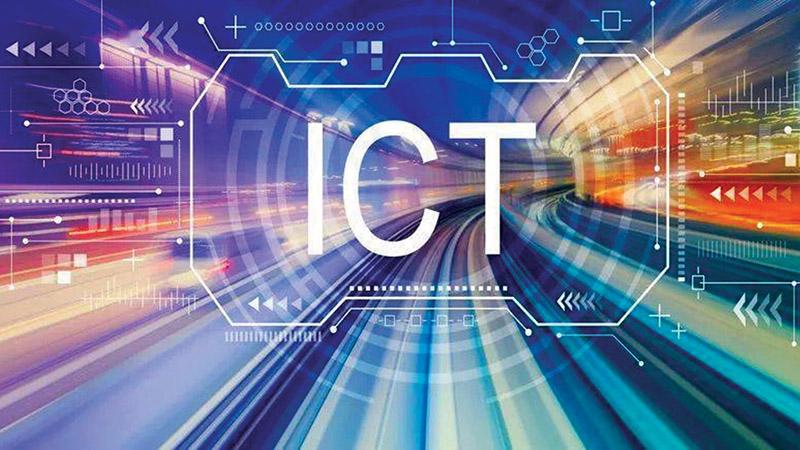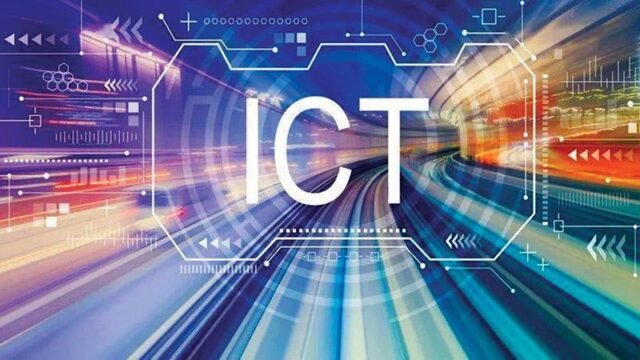At the GITEX Nigeria Tech Expo and Future Economy Conference held in Lagos, Minister of Communications, Innovation and Digital Economy, Dr Bosun Tijani, announced a landmark projection: Information and Communication Technology (ICT) is set to surpass oil and gas as Nigeria’s top revenue earner by 2027.
Currently, ICT contributes between 16 and 18 per cent of Nigeria’s Gross Domestic Product (GDP). By 2027, that figure is expected to hit 21 per cent—a remarkable shift in a country historically defined by its dependence on crude oil exports.
This vision is not merely aspirational. It is anchored in concrete policy, infrastructure investments, and the government’s renewed commitment to harnessing digital innovation as a foundation for national growth.
Table of Contents

Policy Foundations: How Nigeria is Building a Digital Future
Dr Tijani explained that Nigeria’s digital growth strategy is driven by a mix of bold policies and ambitious projects. One of the most transformative is Project Bridge, an ongoing plan to roll out 90,000 km of fibre backbone to connect every state and local government. This infrastructure push is designed to eliminate digital divides, ensuring that both rural and urban communities are digitally connected.
In addition, the 3 Million Tech Talents (3MTT) programme—hailed as the world’s largest digital skills initiative—is training young Nigerians to compete globally. By building a workforce fluent in modern tech skills, the government hopes to reposition the country as Africa’s digital powerhouse.
The proposed National Digital Economy and New Governance Bill is also on the table. The bill aims to introduce frameworks that improve trust, accountability, and transparency in Nigeria’s digital space—critical elements for attracting investment and protecting users.
According to Dr Tijani, the digital economy is not just about apps or online platforms, but a wider ecosystem where technical efficiency drives productivity in agriculture, education, transport, and finance. He credited President Bola Tinubu’s Renewed Hope Agenda with giving technology the spotlight as a tool for expanding opportunities, reducing inequality, and fostering national prosperity.
Lagos at the Heart of Africa’s Digital Transformation
The choice of Lagos as the host city for GITEX Nigeria was no coincidence. Between 2019 and 2024, Lagos attracted more than US$6 billion in foreign investment in the tech sector, cementing its place as Africa’s technology nerve centre.
The state is home to 23 of Nigeria’s 28 fastest-growing tech companies, multiple hyperscale data centres, and an ever-expanding fibre network. Reports from the Financial Times confirm Lagos’ dominance, showing that over 70 per cent of Nigeria’s total tech investments flow into the city.
At the conference, Governor Babajide Sanwo-Olu proudly positioned Lagos as the “rightful capital of technology in Africa.” He reminded participants that Lagos pioneered the use of Oracle technology to collect revenue digitally nearly 20 years ago, long before the rest of Nigeria caught on.
Sanwo-Olu described Lagos as “Africa’s innovation nerve centre and a launchpad for Africa’s tomorrow.” He noted that his administration is deeply committed to a data-driven government, one that relies on real-time insights to design policies, improve services, and stay responsive to the needs of Lagosians.
This focus on innovation is not simply about prestige. For Lagos, it is about creating an environment where startups, investors, and established firms can thrive—building jobs and wealth that ripple across the nation.

GITEX Nigeria: A Showcase of the Country’s Digital Ambitions
The GITEX Nigeria Tech Expo and Future Economy Conference, hosted at the Eko Hotel Convention Centre, brought together global technology leaders, policymakers, startups, and investors under one roof. With its mix of keynote speeches, exhibitions, and deal-making sessions, GITEX provided a stage to demonstrate how far Nigeria’s digital sector has come—and where it is headed.
The Lagos event followed the Government Leadership and AI Summit in Abuja, where officials, AI researchers, and entrepreneurs explored how artificial intelligence could reshape governance, healthcare, education, and security in Nigeria.
At GITEX, the energy was palpable. Nigerian startups rubbed shoulders with global tech giants, while policymakers presented new opportunities for investment. For many in attendance, the message was clear: Nigeria is no longer just a consumer of technology—it is becoming a producer and exporter of digital innovation.
The conference also highlighted cross-sector applications of technology. From fintech companies revolutionising payments to agri-tech startups improving food security, Nigeria’s young innovators are proving that digital tools can address some of the country’s toughest challenges.
Why ICT Matters More Than Oil
For decades, oil has been the lifeline of Nigeria’s economy, contributing the lion’s share of foreign exchange earnings. Yet, oil has also been volatile—subject to fluctuating global prices, theft, and environmental damage.
By contrast, ICT offers resilience and scalability. Digital businesses require less capital-intensive infrastructure than oil rigs or refineries, yet they can generate sustainable jobs and wealth across regions. Moreover, ICT enables diversification by modernising other sectors—boosting agriculture through precision farming, improving education through e-learning, and enhancing security through digital surveillance systems.
The forecast that ICT will surpass oil as Nigeria’s top earner by 2027 is therefore more than symbolic. It signals a structural shift in the Nigerian economy—one that could redefine how the nation competes globally.
For young Nigerians, this transformation is personal. It means more opportunities to work remotely for global firms, to build homegrown startups, and to shape the narrative of Africa as a hub of innovation rather than a resource-dependent continent.

Conclusion
The Lagos conference made one thing clear: Nigeria’s digital future is not a distant dream but a fast-approaching reality. With ICT poised to contribute 21 per cent of GDP within two years, surpassing oil as the country’s top earner, the momentum is unmistakable.
Government investments in fibre connectivity, skill-building, and legal frameworks are laying the groundwork for a new kind of economy—one powered not by crude oil but by creativity, innovation, and connectivity.
For Lagos, already established as Africa’s digital capital, the opportunity is immense. For Nigeria as a whole, the stakes could not be higher. If current policies hold and private sector energy continues to thrive, ICT will not just surpass oil in earnings—it will help reshape Nigeria into a knowledge-driven economy fit for the 21st century.
Join Our Social Media Channels:
WhatsApp: NaijaEyes
Facebook: NaijaEyes
Twitter: NaijaEyes
Instagram: NaijaEyes
TikTok: NaijaEyes














![Tiwa Savage Slams ‘Unfair’ Exclusion of Tems from Afrobeats Big 3 Ranking [VIDEO] Tiwa Savage](https://naijaeyesblog.com/wp-content/uploads/2025/09/Tiwa-Savage-tems-180x135.avif)
























